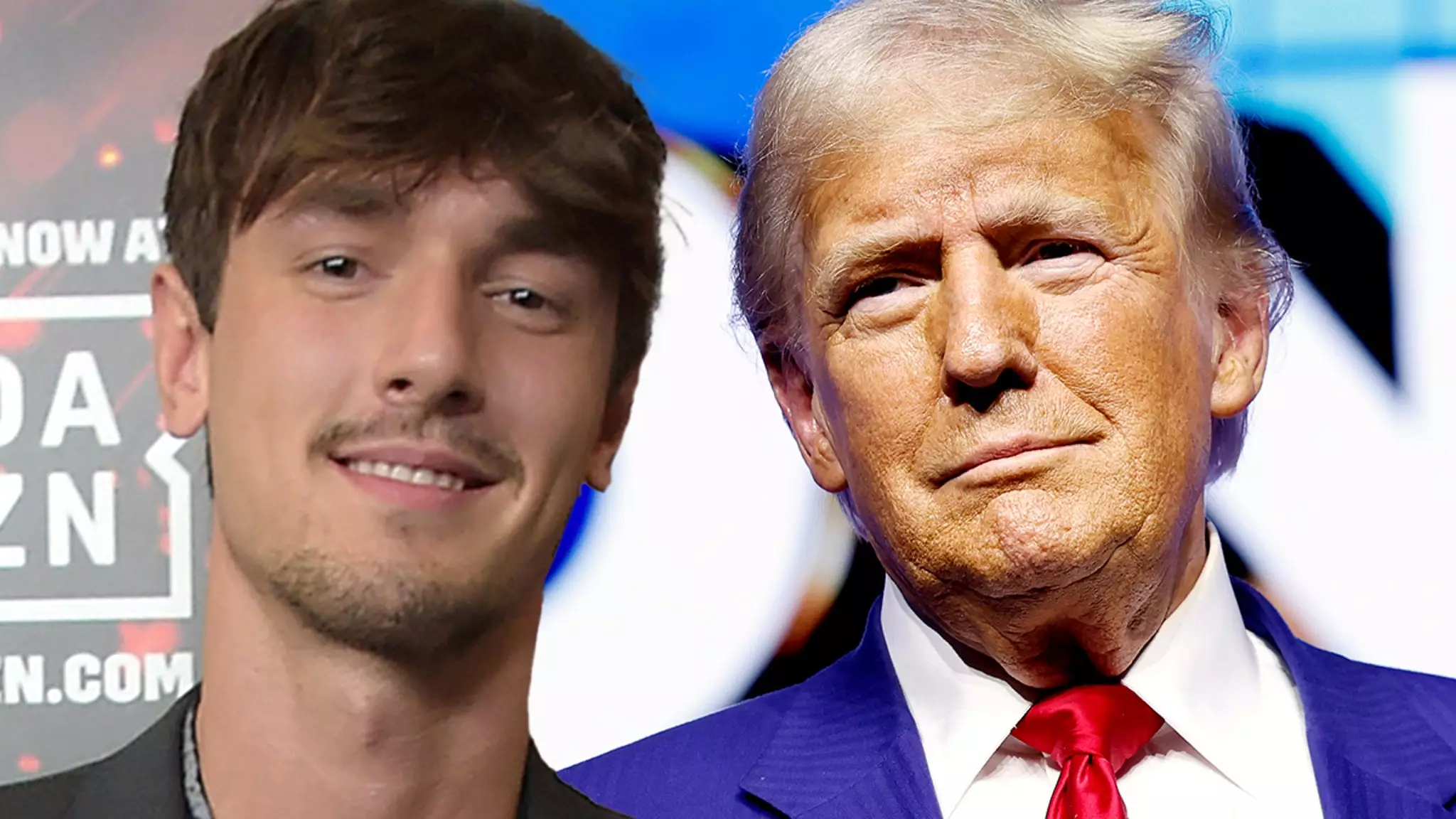In the ever-evolving world of social media, influencers have a remarkable power to shape opinions and drive trends. One such influencer, Bryce Hall, has expressed a keen desire to leverage his substantial following to collaborate with Donald Trump as the latter steps into the White House. This proposed partnership underlines an intriguing intersection between politics and social media – a strategy aimed at both maintaining Trump’s relevance among younger demographics and continuing Hall’s ascent in the digital landscape.
Bryce Hall’s journey towards collaborating with Trump connects him to networks that are both influential and politically significant. Hall has cultivated a relationship with Trump’s team, particularly through his personal link to Blake Wynn, the nephew of casino magnate Steve Wynn. This connection not only exposes Hall to high-profile political figures but also places him in a position where he can facilitate engagement between influential online personalities and the political realm. His interactions with Trump, including a backstage meeting at a rally in Las Vegas, highlight an emerging trend where social media influencers can obtain direct access to politicians, fostering a new modality of public engagement.
The proposed collaboration between Hall and Trump reflects a broader strategy—capitalizing on social media’s viral potential to communicate with Gen-Z audiences. Hall believes that by creating TikToks and vlogs with Trump, he can introduce the president-elect to younger followers in a manner that feels authentic and relatable, bridging the gap between political discourse and social media entertainment. This raises pivotal questions about the role of influencers in political movements and the ethics of such associations. Will this partnership reduce complex political ideologies to mere entertainment, or does it offer a fresh means of engaging younger voters?
Hall acknowledges that his advocacy for Trump during the presidential campaign represented a significant gamble—one that risked alienating segments of his follower base. However, he reasons that the potential benefits outweigh the risks. This decision illustrates the delicate balancing act faced by influencers who navigate personal beliefs, brand identities, and audience expectations. By positioning himself as a supporter of Trump, Hall has not only aligned with a contentious political figure but has also taken on the responsibility of conveying complex political messages to a youthful audience.
As we witness the increasing confluence of digital culture and politics, the collaboration between influencers like Bryce Hall and figures such as Donald Trump signifies a shift in how political messages are disseminated. Embracing digital platforms to foster engagement serves both parties, as Hall seeks to amplify his reach while Trump looks to resonate with an often disengaged demographic. This relationship encapsulates the potential for social media influencers to affect political campaigns and voter engagement profoundly, leaving us to ponder the future implications of such partnerships in shaping public perception and opinion.

